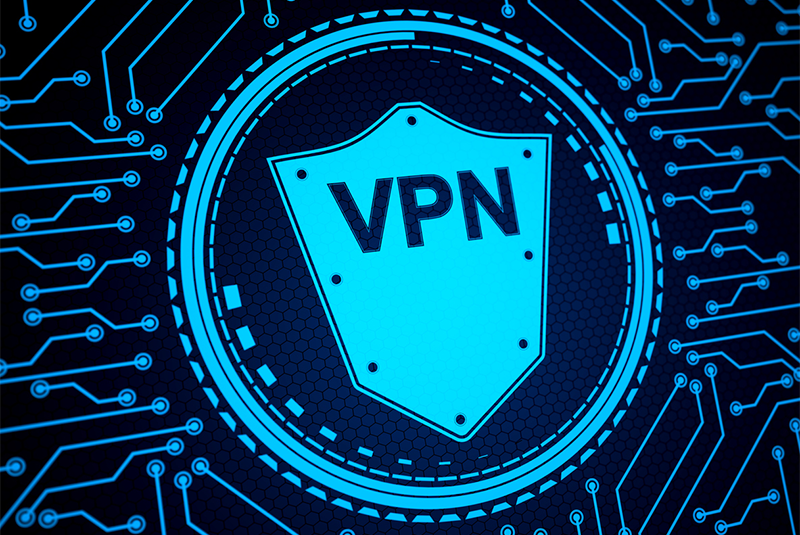Modern antivirus software does a lot more than block viruses. A security suite protects you from dangerous attachments and websites, ransomware, and can also protect your identity and help stop criminals from emptying your bank account.
And here you’ll find everything you need to know about buying security software for a Windows PC or laptop, including our recommendations for which suites to buy. They’ll usually protect mobile devices including Android phones and tablets, too.
Antivirus software is crucial for these devices in order to protect the files and data stored on them. Criminals who create malware – the umbrella term which covers all types of nasty that could end up on your device – are getting smarter every day, but so is antivirus software.
Our current pick of the best antivirus for PC is Norton followed by McAfee and Bitdefender. Read on below the reviews for more in-depth buying advice.
Best antivirus reviews
1
Norton 360 Deluxe

Norton 360 Deluxe is so called because it really does offer all-round security that can protect your key devices as well as alert you if your logins are ever found for sale on the dark web.
The price of this protection is £34.99 for the first year (which is £6.99 per device). The app is available for Windows, Mac, iOS and Android. This is a discount from the usual £89.99 (£18 per device). In the US it’s $49.99 for the first year ($9.99 per device) and $104.99 thereafter. See the deal here.
Some of the highlights include top-notch antivirus performance, web browsing protection, phishing protection, a VPN service and a password manager, plus 50GB of cloud backup storage and performance tools to help speed up your computer. Monthly reports help you keep track of what 360 Deluxe has been up to.
In AV-Test’s most recent test, Norton 360 scored top marks for protection and usability.
2
McAfee Total Protection 2021

There are lots of improvements to McAfee Total Protection for the 2021 version, from the simplified Windows user interface – coming soon to Macs – and the integration of the VPN service so you don’t need a separate app.
That service is better too: it’s faster and now unblocks Netflix.
Malware protection is top notch, and it’s easy to know when you need to do something to protect your PC (such as updating apps) thanks to the new alerts.
With the price covering up to 10 devices (unless you specifically choose the single or 5-device subscription), Total Protection 2021 is great value.
3
Bitdefender Total Security 2021

Bitdefender’s Total Security is an excellent product. Like most rivals, Bitdefender charges a lot less than the standard price for the first 12 months, bringing it down to £34.99/$39.99 and this covers up to five devices.
In AV-Test’s latest report, Bitdefender’s Internet Security managed to catch 100% of the 0-day malware attacks thrown at it, and also scored top marks for overall protection and performance.
Several features have been removed in this latest version, but Bitdefender says this was because users simply weren’t using them, so you’re unlikely to miss them. You get a cross-platform password manager, but parental controls are basic, there are no ID protection features and the VPN is really only a trial version that lets you have 200MB of data per day. You’d need to upgrade to the full version if you want unlimited data (but there are better choices in our VPN roundup if you’re prepared to pay for one).
But if you simply want top-notch malware protection, this is a great choice.
4
BullGuard Premium Protection

BullGuard Premium Protection is the flagship security suite from the company. It includes dynamic machine learning technology to block all types of malware, and there’s anti-ransomware along with a secure web browser which offers extra protection when banking or buying online.
The latest additions include improved identity protection which monitors the dark web for your details, and international phone numbers and bank accounts are now supported. Game Booster has been updated to support platforms with anti-cheat engines.
It usually costs £69.96 / $99.95 for 10 devices, but you’ll find it heavily discounted for the first year. Indeed, with this deal you’ll get 60% off, making it £28 / $39.99, or £2.80 / $3.99 per device.
And in terms of protection, it achieved perfect scores in AV-Test’s latest test, managing full marks for protection, performance and usability.
5
Eset Smart Security Premium

On the surface ESET Smart Security has a simple interface that hides an impressive (but also hugely complex) raft of features.
Of these, only the poor parental controls and in-need-of-an-overhaul firewall configuration let the side down. And it’s worth noting that there’s no provision for identity monitoring / protection, nor a VPN.
Fortunately, the core malware protection – which includes anti-ransomware – is absolutely solid and while there is a bit of a negative impact on performance, the worst is when installing apps – something you won’t do all that often.
You can get ESET Smart Security Premium for £49.99 here for one device and one year. If you’re in the US, it’s $59.99 from here. It’s inexpensive to add licences for extra devices, so it’s considerably better value if you need to protect more than one computer. If you don’t need a password manager or the ability to encrypt files, folders and USB drives, then opt for ESET Internet Security 2021 which is cheaper.
6
Kaspersky Security Cloud

At first sight, there’s little to choose between Kaspersky Security Cloud and Kaspersky Total Security. All the main antivirus tools required are in both products, making them both good choices.
What’s significant about Security Cloud is that it contains adaptive security tech that automatically adjusts your settings based on your current activities. It helps you detect unauthorised devices and dodgy websites, as well as helping you make stronger passwords and manage them safely.
The Cloud version of Kaspersky Security wasn’t included in AV-Test’s latest test, but the Internet Security version that uses the same engine scored top marks for protection, performance and usability.
It’s £49.99/$89.99 for three devices (including mobile) for a year. You can buy it here in the UK, or here in the US.
How to choose the best antivirus software
Internet security software, or Antivirus software, detects, and then prevents, disarms or removes malicious apps or programs, often referred to as viruses.
While we still refer to it as antivirus, that’s only one feature of modern internet security software. That’s because security is no longer just about countering viruses. Although they still exist, viruses are arguably a minor part of the malware now prevalent on the web.
More important now is security of personal data and protection from ransomware. Security exploits aren’t about show-off hackers massaging their egos, anymore, but about monetising their malware.
The modern day criminal doesn’t have to be a hard-line hacker, either. They can buy all the software they need, and millions of addresses, on the dark web or even on eBay, if they know where to look.
Zero-day attacks
Malware is evolving faster than ever, but fortunately the latest generation of antivirus is better equipped than ever to handle new threats.
Although the primary concern is to block malware so it doesn’t install on your PC in the first place, there isn’t an internet security suite made which is 100% effective.
That said, worthwhile internet security and antivirus software should also detect so-called ‘zero day’ attacks, where the malware is so new it hasn’t yet been analysed or had ‘signatures’ build into internet security protection routines.
The speed with which these analyses are made is an important factor in the level of protection an internet security suite can provide. Some companies now claim a turnaround of well under an hour, using information gained from their own customers about similar attacks.
The cloud element in security applications is growing more and more important in speeding up this process. Some products are now using behaviour analysis and even artificial intelligence to make things quicker and more reliable.
Newly-installed software can be monitored, looking for suspicious activity and can be prevented from potentially damaging actions, such as changing registry entries or installing any browser add-ons. Ransomware can also be identified by unexpected attempts to encrypt your files.
How we test antivirus software
Every program on this list is worth your investment. The differences between the top few are relatively minor. The critical thing is to install one of them.
Obviously, we install and use the software ourselves to evaluate the user experience as well as testing out all the additional features which go far beyond viruses. Testing the protection offered from malware, however, is a subtle art that requires serious expertise. For this reason we use test results from independent testing houses including the UK’s SELabs as well as Germany’s AV-Test.org and AV-Comparatives. Each rigorously tests antivirus products from a number of leading security companies.
The multifaceted testing procedure looks not only at how well an antivirus product can detect malware using traditional, largely signature-based methods (that is, employing a database of known malware types), but also how well it can block brand-new, unknown malware caught fresh from the wild. These companies also examine how well security products clean up after an infection if a piece of malware does get through.
We’ve focused on paid-for antivirus products here, but there are some free options available. Paid-for antivirus usually offers better technical support and more comprehensive protection features than free ones, but free is free and some free packages can still give paid packages a good run for their money. Internet security suites go further still, offering firewalls, parental controls, identity theft protection and more.



